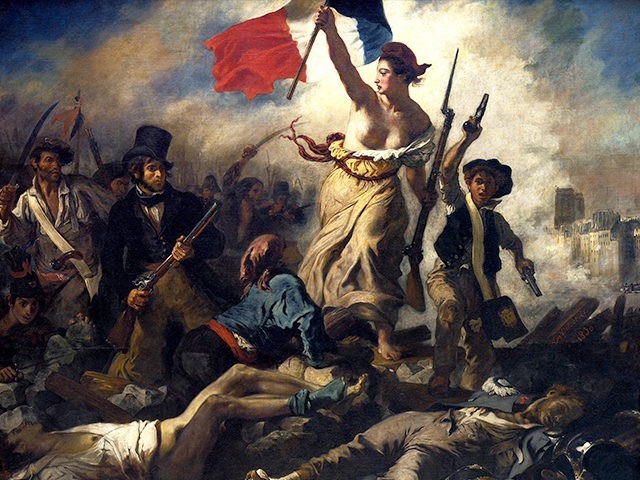George Friedman writes that the current rise of nationalism has nothing to do with fascism; rather, it’s a return to “the core of the Enlightenment’s notion of liberal democracy” – the right to self-determination.
Recently, there have been a number of articles and statements asserting that fascism is rising in Europe, and that Donald Trump is an American example of fascism. This is a misrepresentation of a very real phenomenon. The nation-state is reasserting itself as the primary vehicle of political life. Multinational institutions like the European Union and multilateral trade treaties are being challenged because they are seen by some as not being in the national interest. The charge of a rise in fascism derives from a profound misunderstanding of what fascism is. It is also an attempt to discredit the resurgence of nationalism and to defend the multinational systems that have dominated the West since World War II.
Nationalism is the core of the Enlightenment’s notion of liberal democracy. It asserts that the multinational dynasties that ruled autocratically denied basic human rights. Among these was the right to national self-determination and the right of citizens to decide what was in the national interest. The Enlightenment feared tyranny and saw the multinational empires dominating Europe as the essence of tyranny. Destroying them meant replacing them with nation-states. The American and French revolutions were both nationalist risings, as were the nationalist risings that swept Europe in 1848. Liberal revolutions were by definitions nationalist because they were risings against multinational empires.
Fascism differs from nationalism in two profound ways. First, self-determination was not considered a universal right by fascists. Adolf Hitler, Benito Mussolini and Francisco Franco, to mention three obvious fascists, only endorsed nationalism for Germany, Italy and Spain. The rights of other nations to a nation-state of their own was at best unclear to the fascists. In a very real sense, Hitler and Mussolini believed in multinationalism, albeit with other nations submitting to their will. Fascism in its historical form was an assault on the right of nations to pursue their self-interest, and an elevation of the fascists’ right to pursue it based on an assertion of their nations’ inherent superiority and right to rule.
[…]
We are seeing a return to nationalism in Europe and the United States because it is not clear to many that internationalism, as followed since World War II, benefits them any longer. They may be right or wrong, but to claim that fascism is sweeping Europe and the United States raises the question of whether those who say this understand the principles of fascism or the intimate connection between nationalism and liberal democracy.
Read the rest here.

COMMENTS
Please let us know if you're having issues with commenting.